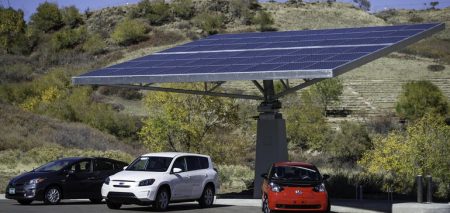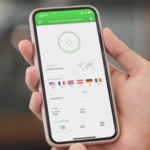December 23, 2016 – Three mid-western states are joining forces to implement a recharging infrastructure on interstate highways running through them. They are Colorado, Utah and Nevada. The highways in question are Interstates 15, 25, 70, 76, and 80. Colorado’s governor, John Hickenlooper, is quoted as saying “Our residents and the millions of visitors to our states will be able to drive electric vehicles from Denver to Salt Lake City to Las Vegas — from the Rockies to the Pacific.” I know that none of these states border on the Pacific Ocean but when you combine this effort along with California, Oregon and Washington state EV infrastructure initiatives, Hickenlooper’s claim is looking true. What is so interesting about this new initiative is how it is very much in the spirit of combating climate change and runs counter to the incoming President-elect’s comments on the subject.
In making the tri-state announcement the parties to the agreement noted that the goal is to make EVs more attractive to purchasers by addressing the range anxiety issue. It is hoped that the building of a recharge network along the Interstate Highway system will also encourage EV charging development on other roadways and in smaller communities regionally.
Colorado has seen EV buy-in grow from 100 to 8,000 vehicles on the road since 2011. Utah currently ranks 7th in EV adoption. Nevada ranks 13th. The latter currently has 2,104 EVs and almost 32,000 hybrids registered.
The three states offer a number of EV initiatives including:
- A $5,000 tax credit on EV purchases in Colorado.
- A Charge Ahead Colorado initiative to build a charging infrastructure throughout the state.
- A Mighty Five Corridor initiative in Utah to install DC fast charging stations throughout the state.
- Nevada plans by 2020 include an electric highway system throughout the state.
Some of the money to pay for the charging infrastructure may come from the recent Volkswagen nationwide settlement. The states may also draw on money from federal zero-emission initiatives.
The three states will also take advantage of the recent federal government commitment of $4.5 billion aimed at building a charging infrastructure for more than 40,000 kilometers (25,000 miles) of highways in 35 states to ensure that EV drivers will be able to recharge every 80 kilometers (50 miles).
There is a sense of inevitability to the rise of EVs. Automotive manufacturers have increased the number of vehicle choices since 2010 from 2 to 25 with more coming. General Motors just delivered its first Chevy Bolt to customers in the home town of Tesla Motors, Fremont, California, just to up the ante on the competition between the two companies seen as leaders in the EV marketplace. Ford Motor Company, however, has no intention of being left out of the running as a top EV competitor and is gearing up to have 40% of its entire model line all electric by 2020.
















